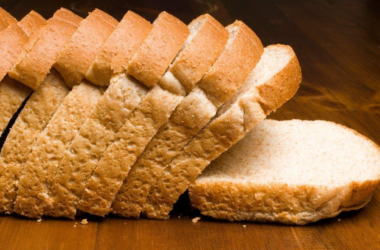One of the most joyous moments in life is welcoming a new baby into the world. New mothers who follow the confinement period-a time to rest and recover while adhering to specific dietary restrictions consider it an important event as well. Some foods are beneficial during this time, but there is also food to avoid during confinement.
Here are eight of the worst foods to consume during Chinese confinement, along with alternative options that allow you to eat delicious meals while prioritizing your health.
The Basics of the Chinese Confinement Diet
Postpartum care is an important part of the Chinese confinement diet, which promotes healing, recovery, and overall wellness after childbirth. New mothers follow a strict diet regimen during this time, consuming warming, nourishing foods while avoiding cooling or difficult-to-digest foods. To restore balance in the body, essential nutrients are replenished after childbirth.
In the Chinese confinement period, new mothers commonly consume ginger, red dates, chicken soup, sesame oil, and brown rice. It is believed that these ingredients have restorative properties, such as aiding digestion, boosting energy levels, improving milk production, and supporting overall health. During this period, certain food to avoid during confinement, as they can hinder recovery or cause discomfort.
Cold drinks or food items like ice cream or salads, greasy fried foods like French fries, raw vegetables, spicy meals, caffeine-rich beverages like coffee or tea, alcohol, and processed snacks are among them. New moms should adhere closely to the Chinese confinement diet plan, as well as get enough rest and exercise regularly to recover faster from labor pains and maintain good health for their babies.
The 8 Worst Foods to Eat During Chinese Confinement
Food to avoid during confinement can cause health problems and hinder the recovery process. Following are the eight worst food to avoid during confinement:
- Cold drinks can disrupt circulation and cause postpartum pain.
- Spicy foods can cause heartburn and indigestion, making recovery more difficult.
- Raw or undercooked meat actively increases the risk of bacterial infections like salmonella and E.coli.
- Fish high in mercury, such as sharks, swordfish, and king mackerel, can be harmful to both mother and child.
- Milk production for breastfeeding mothers is negatively affected by dairy products consumed during confinement, according to traditional beliefs.
- Drinks rich in caffeine, such as coffee or tea, have been linked to sleep deprivation, which may worsen fatigue in new moms.
- You should avoid processed snacks and junk food: Snacks loaded with sugar, salt, and unhealthy fats actively interfere with digestion, resulting in constipation, gas, and bloating.
During the Chinese confinement diet, it is highly recommended to completely avoid these foods. We will explore alternatives in our next blog section.
What to Eat Instead of the 8 Bad Foods
Numerous alternatives to the 8 worst food to avoid during confinement can provide essential nutrients without sacrificing taste.
- Substitute processed and junk food with whole grains such as brown rice or quinoa. These complex carbohydrates provide energy and fiber, ensuring a lasting feeling of fullness. Additionally, incorporate vegetables like spinach, kale, broccoli, and cauliflower, which are high in vitamins A and C and support digestion as well.
- Choose lean meats such as chicken and fish when it comes to protein intake. Salmon, in particular, is extremely beneficial due to its omega-3 content, which actively supports brain development in infants. Vegetarians can choose tofu as an excellent alternative to meat as it provides a complete protein and calcium source.
- Ensure your body is adequately hydrated by drinking water throughout the day. You can also consume herbal teas, but avoid caffeine as it interferes with sleep.
A healthy diet that actively promotes postpartum recovery will undoubtedly be maintained by any expecting mother undergoing confinement.
Tips for Eating Well on a Chinese Confinement Diet
To maximize the benefits of your Chinese confinement diet, here are a few guidelines:
- Preparing your weekly meals and snacks beforehand will help you avoid making unhealthy food choices when hunger strikes during your confinement period.
- You should prioritize foods that are abundant in essential nutrients such as protein, iron, calcium, and vitamins A and C during confinement. These foods include lean meats, fish, leafy greens, dairy products, and citrus fruits.
- When you feel hungry between meals, keep healthy snacks on hand such as nuts, seeds, and fresh fruit. Instead of reaching for chips or sweets, choose these healthy snacks.
- Drink 8-10 glasses of water each day, and consider including herbal teas in your diet for additional health benefits.
- Spice up your meals with herbs and spices such as ginger, garlic, and turmeric. They not only add flavor, but they may also reduce inflammation.
You can enjoy delicious meals during your Chinese confinement period by following these simple tips.
How to Avoid Eating These Foods During Confinement
To ensure the health and well-being of both mother and baby during Chinese confinement, it is important to know what food to avoid during confinement. However, resisting cravings or refraining from dishes commonly served during this period can pose challenges. Here are some proactive tips for food to avoid during confinement:
- Plan and prepare meals in advance to prevent impulsive consumption of unhealthy snacks or ordering takeout when hunger or exhaustion strikes. By preparing nutritious meals ahead of time, you’ll save time and energy throughout the day.
- Seek assistance from family members or a confinement nanny to help with meal preparation and provide support during this period. Delegating cooking responsibilities to others can relieve the pressure on mothers who may feel overwhelmed by caring for a newborn.
- Explore alternative ingredients that can serve as substitutes for unhealthy foods. For instance, instead of sugary drinks, opt for water infused with fruit slices or herbal teas. Rather than indulging in fried food such as chicken wings, consider baking them as a healthier alternative.
- Maintain focus on your goals by reminding yourself of the reasons behind avoiding specific foods during confinement, which are the health benefits for both mother and child. By keeping your sights set on a happy postpartum recovery, it will be easier to adhere to nutritious options while avoiding tempting yet detrimental choices.
The Health Risks Associated with Eating Poorly during Confinement
When you are pregnant, it’s important to maintain a healthy diet as bad eating habits can pose several health risks. Here’s how specific dietary factors can affect your well-being and your baby’s as well as why making informed choices is important:
- The consumption of high-fat foods such as fried chicken or junk food increases the likelihood of gestational diabetes, which affects both mother and baby.
- High sugar intake during pregnancy can cause blood glucose levels to spike, increasing the risk of delivering large babies with low blood sugar levels and preterm labor.
- During this crucial period, caffeine-rich drinks can cause dehydration and disrupt digestion, resulting in constipation and even hemorrhoids.
- Post-delivery discomfort levels can be increased with frequent consumption of processed or canned foods during confinement.
To ensure a smooth recovery after childbirth, it is important to avoid these unhealthy food choices and instead adhere to a wholesome diet.
Conclusion
The Chinese confinement diet can be challenging, and knowing what food to avoid during confinement may cause discomfort or harm to both mother and baby. Maintaining a healthy diet is crucial during confinement for the well-being of both mother and baby. The eight foods listed below can make it easier for mothers to recover from pregnancy and provide their babies with the best possible start in life by ensuring a healthy recovery.
Fresh vegetables, lean protein sources like fish and chicken, whole grains, and healthy fats can boost energy levels and promote healing instead of these unhealthy options. During the postpartum period, every woman’s body is unique, and some foods may be easier to digest than others. Listening to one’s body and making decisions based on personal comfort is essential.
New mothers can minimize their risks of complications during confinement by following a proper diet plan. Whether it involves planning ahead or carefully selecting food choices from the first day after delivery until the completion of the 30-day confinement period (or longer, if preferred), we hope this article has provided valuable guidance to successfully navigate the dietary challenges of Chinese confinement.









